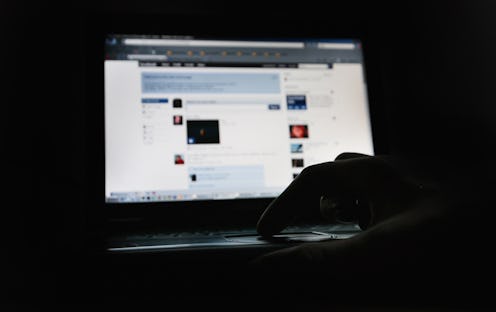Life
Is Facebook Causing Eating Disorders?
It turns out that Facebook might do worse things than aid you in procrastinating on your English homework. A new study out of the Florida State University strongly suggests that there is a correlation between frequent Facebook use and eating disorders. So thanks, Facebook. Thanks a lot.
In the first phase of the study, 960 college-age women answered a standard questionnaire designed to gauge a woman's risk for an eating disorder. They also estimated the women's average Facebook use and reported how important they considered Facebook likes, or how likely they were to untag unflattering photos of themselves. The numbers showed that girls who regularly used Facebook and placed more emphasis on likes were more likely to exhibit warning signs for eating disorders. The increased risk wasn't huge, but the numbers were consistent.
In the second phase, 84 of the women who reported significant Facebook use and represented a variety of eating disorder risk levels were invited back and divided into two groups: one group that spent 20 minutes using Facebook, another that spent 20 minutes researching a rainforest cat called an ocelot on Wikipedia, and then watching videos of them. Given the choice, I think I'd pick that second option, especially since the group that hung out on Facebook were more likely to exhibit elevated eating disorder risk afterwards.
And that's just after 20 minutes. Who knows what your attitudes are like after an hour-long Facebook binge.
In many ways, this makes a lot of sense. I mean, on Facebook, the emphasis is always on the positive. You only post the photos that look good. You talk about all the things going right in your life. And even when we do share our problems, they always seem to have a humorous twist somehow. The status update with no positive slant anywhere is pretty rare. So spend enough time on social media and it can start to feel like everyone else's life is just better than yours — they're happier, more successful, and better looking.
So how do we combat this? Well, I could say that we should start posting our ugly selfies and talking about our bad days on Facebook, but realistically that probably isn't going to happen. So maybe the best we can do is just bear in mind that Facebook isn't real. The more we keep repeating that, hopefully the more our subconscious will stop comparing our real lives to everybody else's Facebook lives. And for people who do struggle with eating disorders, maybe taking some time away from social media can help.
